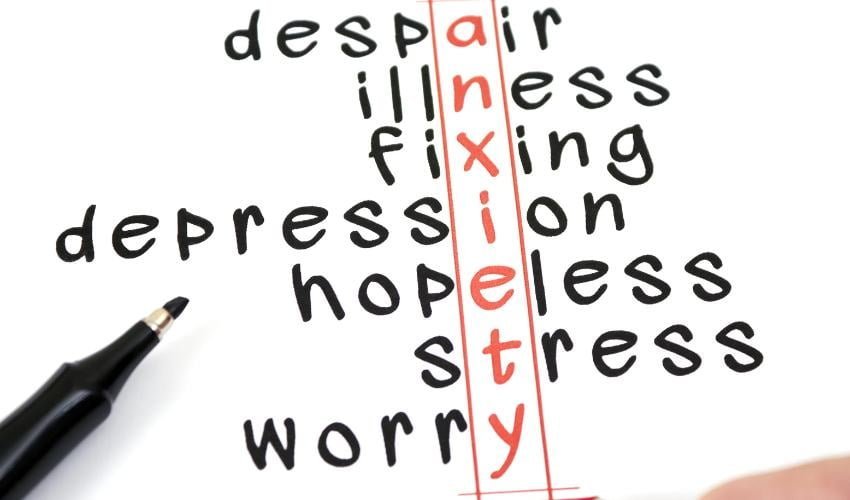Anxiety
Anxiety in particular also refers to anticipation of a future concern and is associated more with muscle tension and avoidance behavior. Anxiety disorder is the most common of mental disorders affecting majority of population. For people who have it, worry and fear are constant and overwhelming.

hypertension-symptoms
Common symptoms of anxiety might include:
- Feelings of apprehension or dread
- Restlessness or trouble concentrating
- Feeling completely blank
- Pounding heart, and sweating
- Headaches, upset stomach, or dizziness
- Frequent urination or diarrhea
- Shortness of breath
- Muscle tension
- Fatigue or insomnia
Anxiety Treatment
Two powerful tools for fighting anxiety: psychotherapy (or talk therapy) and medication.
Depression
A depressive disorder is an ailment that includes the body, frame of mind and feelings. Depression is considered to be one of the highest treatable disorder. Just like all other illnesses, the earlier the treatment is provided, the more effective it is and the probabilities of recurrence can be prevented.

Symptoms of Depression
Some of the common signs and symptoms of depression are:
- Deep feelings of sadness
- Dark moods
- Feelings of worthlessness or hopelessness
- Appetite changes
- Lack of energy
- Lack of interest in things one used to enjoy
- Abnormal sleep patterns, such as insomnia (not sleeping through the night), restless sleep, etc.
- Feeling worthless or guilty
- Hallucinations, Delusions or Paranoia
- Reduced sexual desire or lack of sexual performance
- Withdrawing from friends
- Preoccupation with death or thoughts of self-harm
- Excessive use of substances and alcohol
- Drinking excessively
- Engaging in high-risk activities
- Difficulty staying focused on a task and performing daily tasks
- Slow responses during conversations
Most people think that treating depression only involves meeting with a mental health expert weekly for filling medications.
Hypertension
Hypertension or high blood pressure is one of the common disorders affecting. There are numerous factors that put you at risk of hypertension which include sedentary lifestyle, increased age, stress, family history, cigarette smoking, being overweight, high salt diet, etc. Pulmonary hypertension is hard to diagnose early because it’s not often detected during a routine physical exam. Blood and imaging tests done to help diagnose pulmonary hypertension may,






